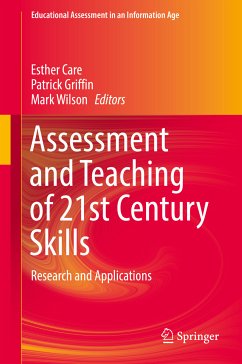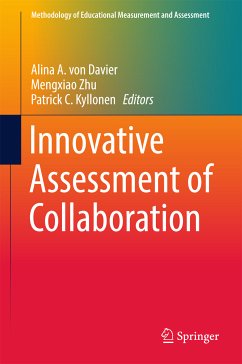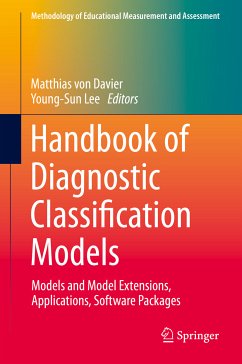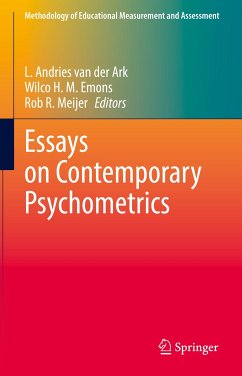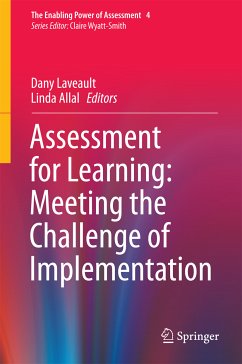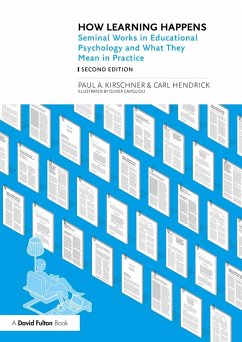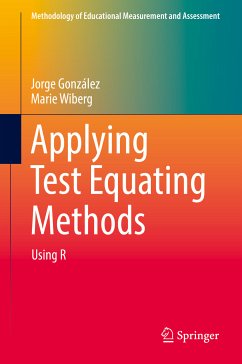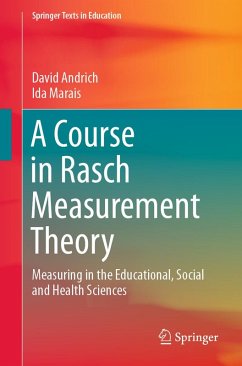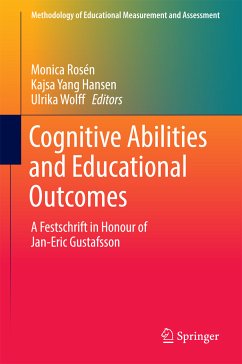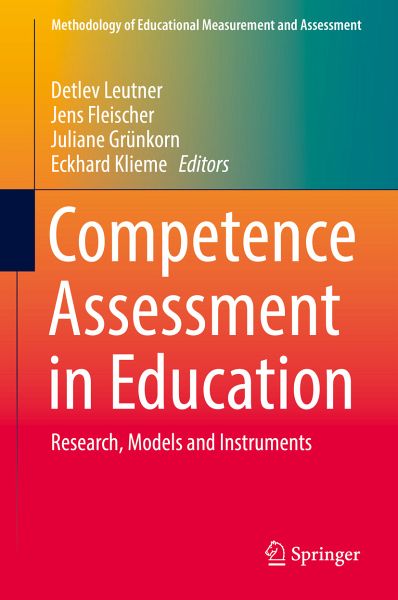
Competence Assessment in Education (eBook, PDF)
Research, Models and Instruments
Redaktion: Leutner, Detlev; Klieme, Eckhard; Grünkorn, Juliane; Fleischer, Jens
Versandkostenfrei!
Sofort per Download lieferbar
88,95 €
inkl. MwSt.
Weitere Ausgaben:

PAYBACK Punkte
44 °P sammeln!
This book addresses challenges in the theoretically and empirically adequate assessment of competencies in educational settings. It presents the scientific projects of the priority program "Competence Models for Assessing Individual Learning Outcomes and Evaluating Educational Processes," which focused on competence assessment across disciplines in Germany.The six-year program coordinated 30 research projects involving experts from the fields of psychology, educational science, and subject-specific didactics. The main reference point for all projects is the concept of "competencies," which are...
This book addresses challenges in the theoretically and empirically adequate assessment of competencies in educational settings. It presents the scientific projects of the priority program "Competence Models for Assessing Individual Learning Outcomes and Evaluating Educational Processes," which focused on competence assessment across disciplines in Germany.
The six-year program coordinated 30 research projects involving experts from the fields of psychology, educational science, and subject-specific didactics. The main reference point for all projects is the concept of "competencies," which are defined as "context-specific cognitive dispositions that are acquired and needed to successfully cope with certain situations or tasks in specific domains" (Koeppen et al., 2008, p. 62). The projects investigate different aspects of competence assessment: The primary focus lies on the development of cognitive models of competencies, complemented by the construction of psychometric models based on these theoretical models. In turn, the psychometric models constitute the basis for the construction of instruments for effectively measuring competencies.
The assessment of competencies plays a key role in optimizing educational processes and improving the effectiveness of educational systems. This book contributes to this challenging endeavor by meeting the need for more integrative, interdisciplinary research on the structure, levels, and development of competencies.
The six-year program coordinated 30 research projects involving experts from the fields of psychology, educational science, and subject-specific didactics. The main reference point for all projects is the concept of "competencies," which are defined as "context-specific cognitive dispositions that are acquired and needed to successfully cope with certain situations or tasks in specific domains" (Koeppen et al., 2008, p. 62). The projects investigate different aspects of competence assessment: The primary focus lies on the development of cognitive models of competencies, complemented by the construction of psychometric models based on these theoretical models. In turn, the psychometric models constitute the basis for the construction of instruments for effectively measuring competencies.
The assessment of competencies plays a key role in optimizing educational processes and improving the effectiveness of educational systems. This book contributes to this challenging endeavor by meeting the need for more integrative, interdisciplinary research on the structure, levels, and development of competencies.
Dieser Download kann aus rechtlichen Gründen nur mit Rechnungsadresse in A, B, BG, CY, CZ, D, DK, EW, E, FIN, F, GR, HR, H, IRL, I, LT, L, LR, M, NL, PL, P, R, S, SLO, SK ausgeliefert werden.



